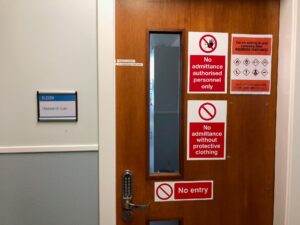Video: What is neurodivergence?
A short, 2-minute, informational video, based on research funded by NERC, looking at making science careers more inclusive to neurodiverse people. Video has captions and British Sign Language interpretation.
Published : 01/05/2022
Home » Video: What is neurodivergence?
What is neurodiversity?
A short 2-minute introduction on what is neurodivergence or neurodiversity?
Link to transcript
Research suggests that disabled and neurodivergent early career researchers (ECRs) lack career opportunities due to inadequate means of engagement and inaccessible laboratories, office space and field work sites.
The EnDISC project, funded by NERC in 2022, aimed to address this gap by using novel methods of co-design approaches to centre the lived experiences and needs of neurodivergent people at work, in this case, within the natural and environmental sciences.
EnDISC performed a rapid evidence review, distributed and analysed a survey, conducted focus groups, and intervieed neurodivergent researchers to co-design recommendations for employers and funders to create neurodivergent inclusive research cultures.
Data showed the most significant barrier is the academic workplace culture, which lacks understanding of and support for, neurodivergent scientists. The most concerning finding was that 37% of ECRs surveyed indicated they had considered leaving academia and that due to this culture, 73% had not requested any adjustments.
EnDISC recommends that institutions:
- foster a culture of openness and inclusion, and support for neurodivergent
employees - communicate clearly rights and responsibilities, including mandatory
adjustments and job role expectations - allow greater flexibility for work schedules and location
- be much more willing to provide adjustments, including private office space
The EnDISC team at Heriot-Watt University was lead by EDICa’s PI, Prof Kate Sang, and supported by EDICa’s Fenella Watson and Dr Clay Magill in addition to Dr David Woolf based on the Orkney Campus, and School Director of Research, Prof Teresa Fernandes. Postdocs Dr Cat Morgan (who subsequently worked on the EDI Caucus), and Dr Lena Wanggren were hired as the postdoctoral researchers on this project.

Report on Enabling NeuroDiverse Inclusive Science Careers
Read our full report with recommendations on how to make a more inclusive research culture for neurodivergent people.
Other related resources
EDICa hosts a regular blog and seminars, as well as collecting a library of resources of equality, diversity & inclusion practices in research & innovation.

Video: Recommendations for creating an accessible and inclusive research culture
Date: 5th July 2022
Short 3-minute informational video on recommendations based on research on how to create an accessible & inclusive research culture

Video: What barriers are faced by neurodivergent researchers?
Date: 3rd July 2022
Short 3-min information vide on what barriers neurodivergent researchers face.

Enabling NeuroDiverse Inclusive Science Careers
Date: 31st May 2022
Recommendations for how to make science careers more inclusive for neurodivergent researchers.

